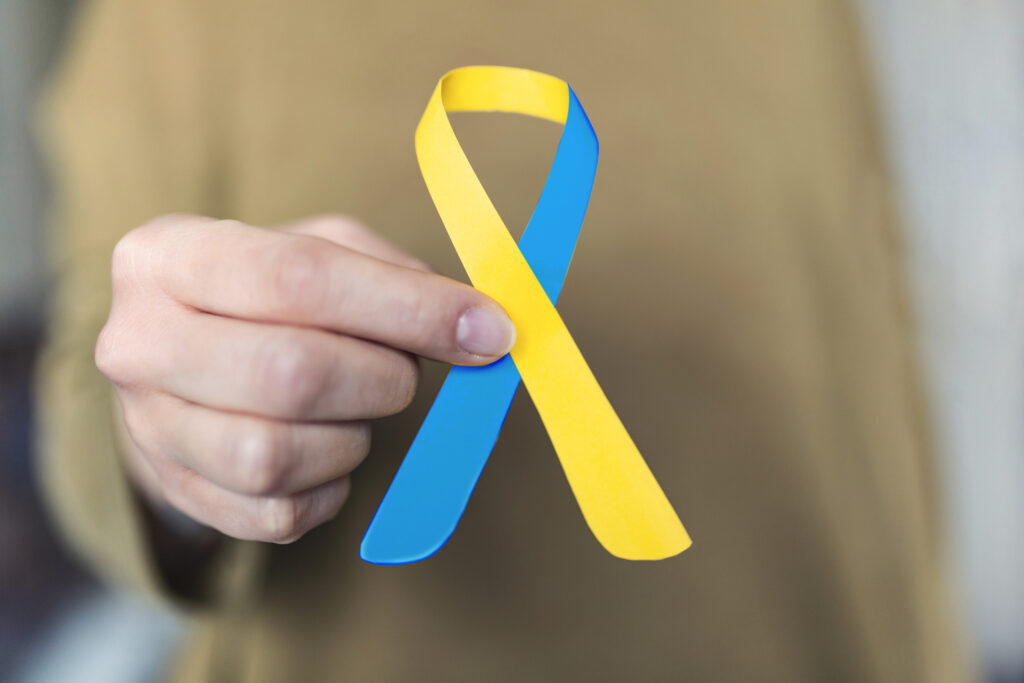According to the National Down syndrome Society, in the US, 1 in 772 live births result in a Down syndrome diagnosis, making Down syndrome the most common chromosomal condition. The month of October is Down Syndrome Awareness Month, giving families, individuals, and patients the opportunity to share information about the condition, learn more, and contribute to creating an environment of understanding, inclusion, and acceptance.
What is Down Syndrome?
Down syndrome is a genetic condition that occurs when an individual has a full or partial extra copy of chromosome 21 and the extra genetic material changes how their bodies grow and learn. Regardless of race or economic status, Down syndrome can happen to any family. It is known however that older women have an increased chance of having a child with Down syndrome. According to the National Down Syndrome Society, a 35-year-old woman has about a one in 350 chance of conceiving a child with Down syndrome, and by the age of 40, the chance increases gradually to 1 in 100. By age 45, the incidence of Down syndrome is 1 in 30.
As many families opt to postpone building a family to later in life, the incidence of Down syndrome is expected to increase. Fetal chromosomal abnormality is a prominent cause of newborn birth defects, according to the March of Dimes. As a result, genetic testing and counseling for parents-to-be are becoming more relevant and important.
Noninvasive Prenatal Screening (NIPS)
NIPS, or noninvasive prenatal screening, can be an important factor in learning more about a fetus’s health and genetic conditions caused by chromosomal abnormalities, and while genetic testing during pregnancy may seem complex, results can yield empowering and helpful information for growing families.
The NIPS blood test can be performed after the 10th week of pregnancy and is considered noninvasive because it is performed on a blood sample from the mother without harming the fetus.2 These screenings are not diagnostic tests, but can help identify the potential risk for a genetic disorder.
NIPS screening is most commonly used by healthcare providers for early detection of a chromosomal abnormality such as:
- Down syndrome (Trisomy 21): caused by an extra chromosome 213
- Edwards syndrome (Trisomy 18): caused by an extra chromosome 184
- Patau syndrome (Trisomy 13): caused by an extra chromosome 135
- Sex chromosome abnormalities (SCA): caused by extra or missing copies of X or Y chromosomes2
ClariTest® Core Noninvasive Prenatal Screen
The non-invasive prenatal screen ClariTest® Core from GenPath Women’s Health, a division of BioReference®, is performed using the most widely studied NIPS method, with over 60 published studies demonstrating its accuracy. ClariTest® Core is an evidence-based option that screens for the most common chromosomal abnormalities and fetal sex, with the option to screen for just one microdeletion – 22q syndrome, also known as DiGeorge syndrome.
ClariTest® Core can be an important step in your prenatal care and can provide you and your healthcare provider with valuable information about your pregnancy. Based on recommendations by American College of Obstetricians and Gynecologists and Society for Maternal-Fetal Medicine, all pregnant women, regardless of age or baseline risk, have the option of choosing NIPS. If you are pregnant, take time to discuss preferred and appropriate test options with your healthcare provider.
If you are a healthcare provider, click here to learn more about ClariTest® Core
Sources:
- https://www.ncbi.nlm.nih.gov/pmc/articles/PMC6642313/#jcla22911-bib-0002
- https://medlineplus.gov/genetics/understanding/testing/nipt/
- https://medlineplus.gov/genetics/condition/down-syndrome/
- https://medlineplus.gov/genetics/condition/trisomy-18/
- https://medlineplus.gov/genetics/condition/trisomy-13/
- https://www.acog.org/advocacy/policy-priorities/non-invasive-prenatal-testing





















